Theories and Practice in Curriculum Design for Language Departments
When and Where
Speakers
Description
We are delighted to welcome professor Luiz Amaral from UMass Amherst for a visit to our department. We invite all faculty, course instructors, teaching assistants and people interested in teaching languages in higher education to this workshop.
About the Workshop:
Curriculum design for language programs at the post-secondary level in North America often faces two main challenges. First, the students’ growing expectation to receive a career-oriented education force programs to develop strategies that combine the well-known strengths of a liberal arts education with new curricular initiatives that expand the boundaries of traditional disciplines and incorporate practices beyond the classrooms on campus, such as study abroad, internships, and community-based learning. Second, a diverse student population with a heterogeneous language learning background presents a series of pedagogical challenges to a one-size fits all language curriculum, especially for programs with large populations of bilingual speakers, such as heritage language learners.
In this workshop, we will discuss some theoretical and practical aspects of today’s demands to the development of robust language curricula that can address the needs and expectations of diverse student populations. We start by reviewing some theories that can help us think about program development. The core idea is that any pedagogical practice should be informed by our understanding of language learning and our theory of what is being learned, i.e., language. Using a combination of functional and structural perspectives on language and language learning, we will look at different learner profiles to better understand the linguistic development of L2 and heritage language students. We can then discuss the specific structures of programs, types of courses to be offered and some methodological choices that can inform lesson and syllabus planning. On the second part of the workshop, we will look at a couple of curricular models that are being tried out in different institutions, some changes proposed to degree requirements, and the diversification of course offerings in all areas of the programs, from literature to film, theater, visual arts, linguistics, and the so called “courses for the professions.” I will briefly discuss the iSTEP and the languages for STEM initiatives that are taking place at UMass Amherst.
About the Presenter:
Luiz Amaral is a Professor of Portuguese and Spanish Linguistics at the University of Massachusetts Amherst and a lifelong language learner. His research focuses on bilingual and second language acquisition, endangered languages revitalization programs, pedagogical materials for language teaching and computer assisted-language learning. He is currently the Director of the Portuguese and Brazilian Studies Program at UMass Amherst, the chief editor of Living Languages, a journal dedicated to the revitalization of endangered languages, and the director of the Polyglot Lab. Since 2012 he has been working as a consultant in educational projects sponsored by UNESCO, local governments, and NGOs to develop pedagogical materials and language programs at indigenous schools in Latin America.
Please register through Eventbrite https://amaral-language.eventbrite.ca before May 3rd.


